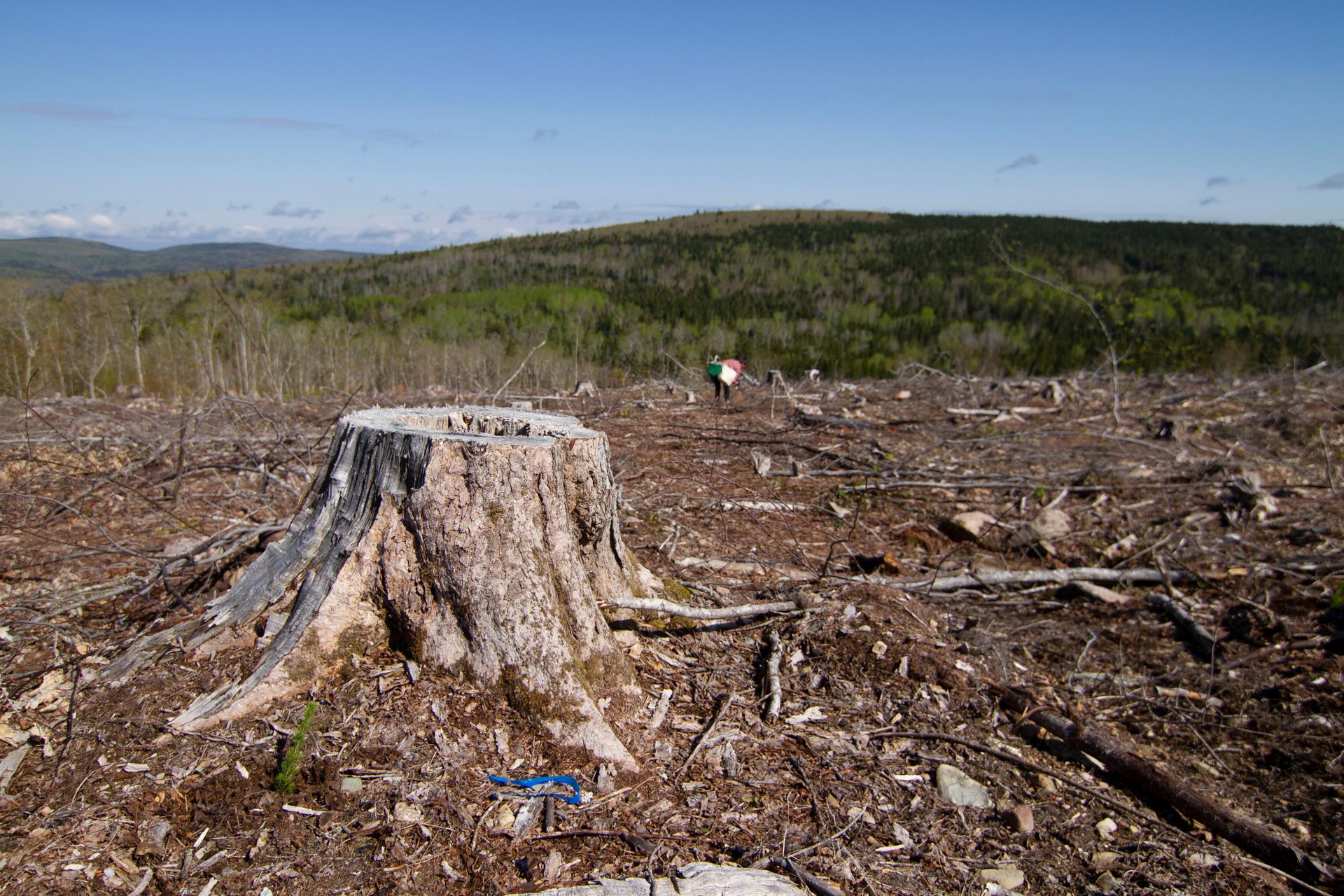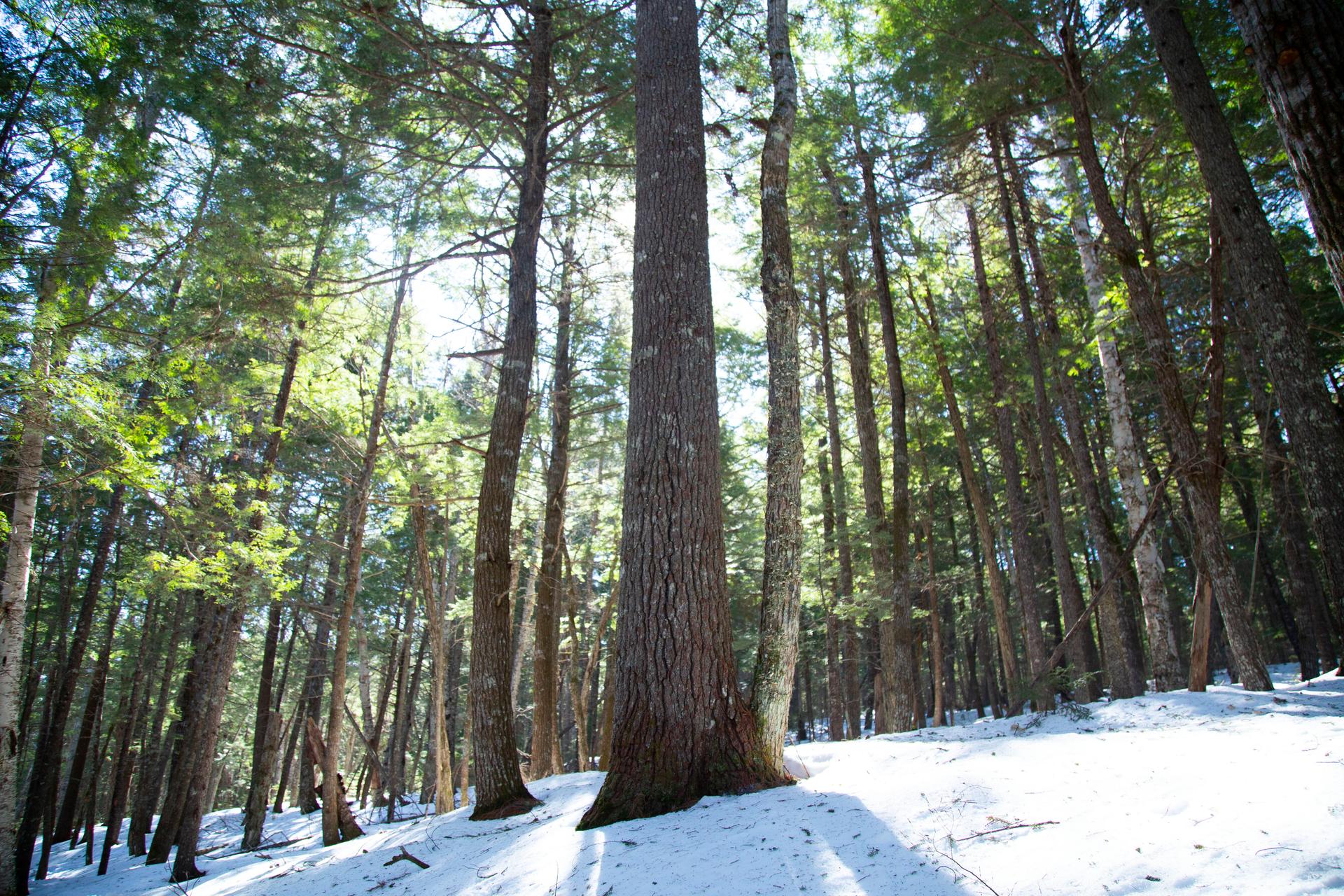When Patricia Amero walks around the Acadian forests of eastern Canada where she lives, she sees more than the potential for timber sales.
As the general manager of the Western Woodlot Services Cooperative, Amero helps landowners in the Maritime Provinces decide where and when to cut trees to sell for timber — and how to make their forests healthier and more productive.
To make income off forested land, clear-cutting it is one of the main options available to Maritimes forest owners. But Amero says some owners are interested in other options, like getting paid to store carbon and help fight climate change — and getting that funding through carbon offsets purchased by companies.
Related: Global demand for carbon offsets to combat emissions is growing — but the supply is unreliable
Carbon offsets are gaining popularity as a climate solution around the world, particularly because more companies and countries are making big promises to achieve net-zero carbons emissions.
Amero sees these offsets as a potential way to help Maritimes woodlot owners, so she helps them connect to Community Forests International, a conservation nonprofit located in New Brunswick, which uses carbon offsets to finance more sustainable forest management.
“We see forest offsets as a mechanism or as a way to provide these landowners with an incentive to leave trees [intact] to manage sustainably.”
“We see forest offsets as a mechanism or as a way to provide these landowners with an incentive to leave trees [intact] to manage sustainably,” said Zach Melanson, a co-founder of the organization.
Offsetting through forest conservation can be an unreliable climate solution due to murky carbon accounting and conflicts between conservation organizations and local people over land uses. Despite these challenges, Melanson and his co-workers are trying to create a model where the benefits outweigh the risks.
Melanson said CFI is not just trying to save trees, but also changing the way that forests are managed.
“We want to use forest carbon offsetting to connect forest landowners to markets that will help them manage their forests better,” he said.
Over the past decade, CFI has partnered with 10 family forest owners in the Maritimes to create carbon management plans that encourage selective tree growth as well as cutting to spur forest growth, which stores more carbon.
So far, their plans cover nearly 10,000 acres of private forest.
Related: Under Biden, US Interior Department will undergo major agenda shift
Funding for these types of initiatives often comes from large companies who want to offset their own carbon emissions.
“We’ve worked with companies mostly in the larger financial centers, so Toronto and Vancouver, to basically make their carbon footprints tangible in trees,” Melanson said.
Melanson hopes CFI will expand in the coming years, especially as Canada’s carbon pricing system is getting stricter — which is expected to increase demand for offsets.

The federal government is developing a federal offset standard that provides regulatory guidelines for conservation groups and other organizations to receive funding from polluters in exchange for carbon sequestration or emissions cuts elsewhere.
Offsets advocates hope that these kinds of projects can help change forest management dynamics in the Maritimes, said Tom Beckley, a forestry expert at the University of New Brunswick.
As it stands now, most privately owned forests go through repeat cycles of forest clear-cutting every 40 to 60 years, Beckley said.
Related: Austria’s ‘close-to-nature’ forests may hold secrets to fire prevention
CFI could help “break out of that cycle and figure out a way to create revenue streams for landowners that don’t involve that kind of liquidation mindset,” he said. CFI could also help people plan for climate change, he said, by selecting trees that thrive in warmer temperatures or drought.
Maritimes climate policy expert Louise Comeau, also at the University of New Brunswick, said offset projects — even ones that have clear benefits — are a sort of niche solution.
“Offsets by default will always be extremely tiny. … They get a lot more attention than they deserve, in my opinion.”
“Offsets by default will always be extremely tiny,” Comeau said. “They get a lot more attention than they deserve, in my opinion.”
Comeau says she worries that companies will delay emissions cuts if they use offsets, and that they should only be considered on a limited basis, coupled with drastic decreases in carbon emissions.
“In the short term, while we’re in an emergency, we don’t see any additional reductions coming from industry if they just use offsets,” Comeau said.
But Joseph Pallent at Ecotrust Canada doesn’t think offsets let companies off the hook.
Related: Fighting climate change means focusing on ‘Earth repair’
He said programs that actively change the way management happens show the transformative potential of offsets.
“Projects that support Indigenous people to have more control over their landscapes, projects that support smallholders in the Maritimes, to keep their family forests standing rather than cutting it — they are creating the world that we want to see happen.”
“I think of it as a tool to invest in real emission reductions,” Pallant said. “Projects that support Indigenous people to have more control over their landscapes, projects that support smallholders in the Maritimes, to keep their family forests standing rather than cutting it — they are creating the world that we want to see happen.”
Forests remove nearly a third of global CO2 emissions every year from the atmosphere.
Ultimately, Amero from Nova Scotia, says she supports the idea of companies pitching in to pay forest owners like her to preserve their land and the material and spiritual values that it holds.
“[S]houldn’t everyone … contribute in some way for the wide range of contributions that forests make to the world?”
“Everyone in society benefits from these forests,” Amero said. “So, it’s almost like, shouldn’t everyone pay for that, or contribute in some way for the wide range of contributions that forests make to the world?”
Our coverage reaches millions each week, but only a small fraction of listeners contribute to sustain our program. We still need 224 more people to donate $100 or $10/monthly to unlock our $67,000 match. Will you help us get there today?
